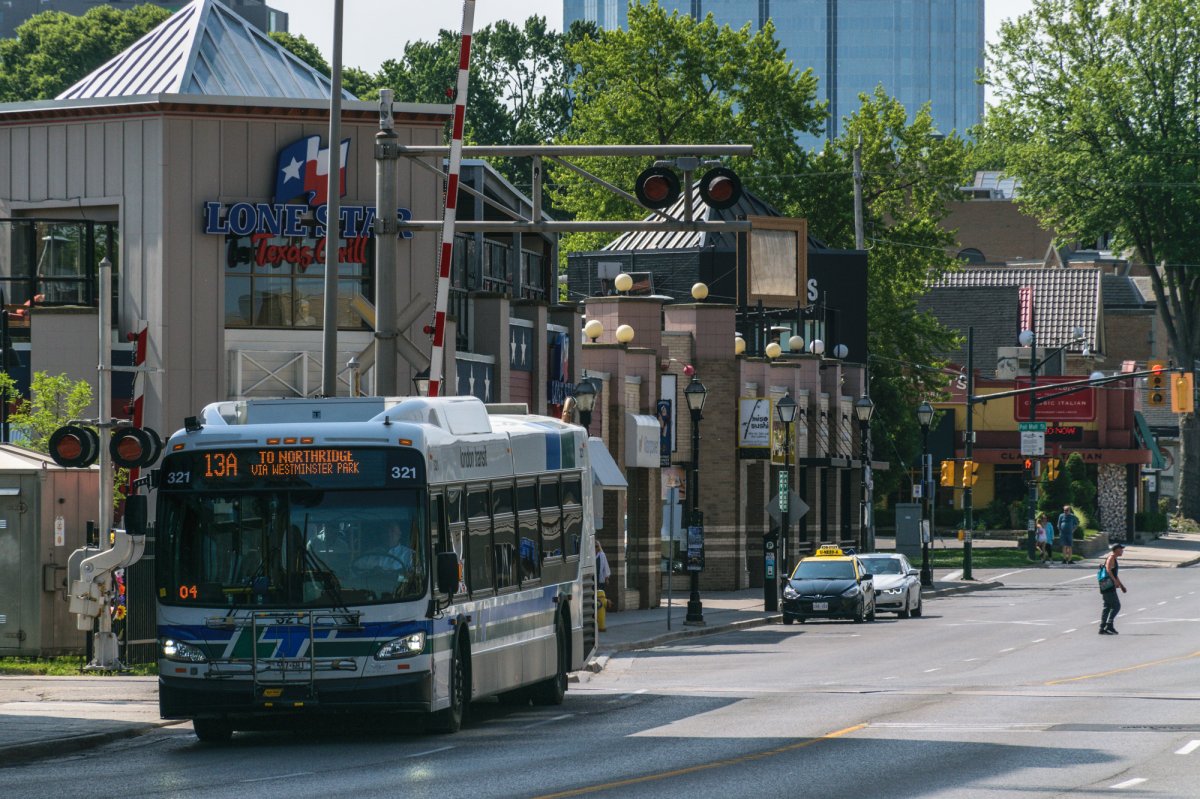Financial relief is on the way for the London Transit Commission thanks to plans to resume collecting fares and expected funding from upper levels of government.

On Monday, the province announced that municipalities will receive up to $4 billion in funding to help cover the costs incurred due to the COVID-19 pandemic, with up to half earmarked for public transit. Premier Doug Ford said the money, provided in partnership with the federal government, will be doled out in the coming months. It’s not yet clear how much London, Ont., will receive.
Phil Squire, city councillor and LTC chair, says every transit authority has been impacted by the pandemic and the $2 billion “will really go a long way” to help offset operating revenue shortfalls, resulting in a better economic outlook for both the LTC and the City of London.
“Part of (the city’s) shortfall is that the city has been counting in their shortfall, transit. There’s been a little bit of double-counting, which I sort of pushed back against. The transit shortfall has actually been included in the city’s shortfall so that’s good news, too. The situation isn’t as dire as people think.”
In addition to funds from upper levels of government, the LTC is also planning to start collecting fares no later than Sept. 1. The LTC stopped collecting fares and implemented a rear-boarding policy on March 20 as part of efforts to stem the spread of the novel coronavirus.
Since then, a face-covering mandate has also come into effect and the LTC is now just waiting on installing driver barriers before returning to collecting fares.
“We have to get back to paid fares as soon as possible,” Squire said on London Live with Mike Stubbs on Tuesday.
“For me, it’s going to be a question of how many barriers do we have to have in place before we start charging fares. I think we can do better than September 1 but we’ll certainly be voting on that (Wednesday) night at LTC.”
A report discussed at Wednesday’s meeting stated that if all barrier delivery schedules are met, there will be enough retrofitted buses to begin fare collection Sept. 1. If deliveries can be sped up, the report notes that a return to fare collection and front-door boarding could resume before September. However, if there are delays, staff suggest reducing services starting with “the elimination of tripper buses and extending to potential route/run cancellations as required.”
Following Wednesday’s meeting, the LTC issued a public service announcement stating that the commission chose to extend rear door boarding on conventional transit “until such time as the appropriate number of buses in its fleet are equipped” with a driver barrier, but “no later than September 1.” The statement added that the LTC will communicate the return of front-door boarding and fare collection “well in advance of the effective date.”
According to another staff report, the loss of revenue due to the cessation of fare collection on conventional service grew to $9.1 million by the end of June. The loss was partially offset by just over $1 million in savings in personnel costs due to reduced service hours as well as $862,000 in savings in fuel costs due to reduced kilometres and lower than expected prices, as well as other “favourable” costs.
Overall, the report states that “the conventional transit service to-date has a net unfavourable actual to budget performance” of just over $6.2 million.
Speaking on The Morning Show with Devon Peacock on Thursday, LTC general manager Kelly Paleczny provided updated estimates that cover until the end of July, though she noted that the figures are “worst-case scenario because there’s a number of things that still have yet to be reconciled.”
“To date we’re looking at a total shortfall out to the end of July — we’ve provided July estimates given we’re not quite there yet — at about $8.7 million. That’s almost $12 million in lost revenue which is offset by an almost $3.5 million in savings related to the reduced service we’re providing, savings in fuel and some other savings.”
Previously, the LTC voted to delay its 2020 service plan and assessment growth projects in an effort to fill the gap. The LTC has also identified reserve funding it can turn to.
Still, Squire noted Tuesday that even though the LTC will “get back to 90 per cent” of its normal service come September 6, ridership levels won’t magically return to pre-pandemic levels.
A staff report notes that students make up approximately half of all conventional ridership and that both Fanshawe College and Western University are expecting a return of a portion of their students, though it’s not yet clear how many students will “return to the city to complete their studies online.” The report notes that even if students don’t attend campus for classes, they may still “rely on transit to get around the city.”
“After September 1, we’re going to have a lot lower revenue from student ridership, I suspect we’re going to have lower revenue from other areas. We’re also going to have to do our best to maintain social distance so that’s going to mean less revenue,” he said.
“It’ll be a challenge but we’ll get through it.”

— with files from The Canadian Press’ Paola Loriggio.









Comments